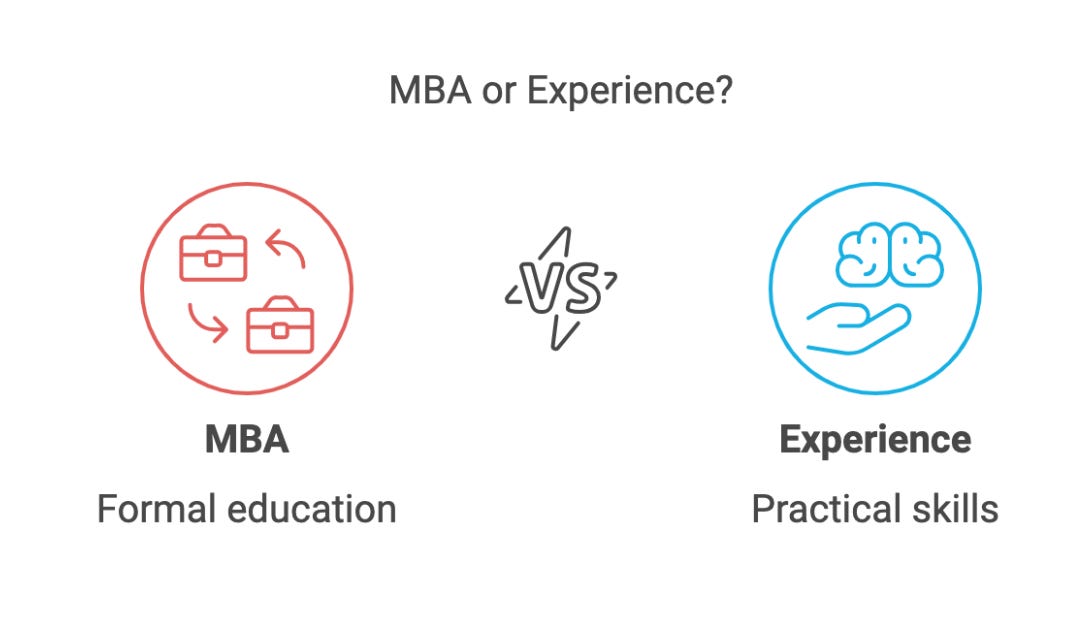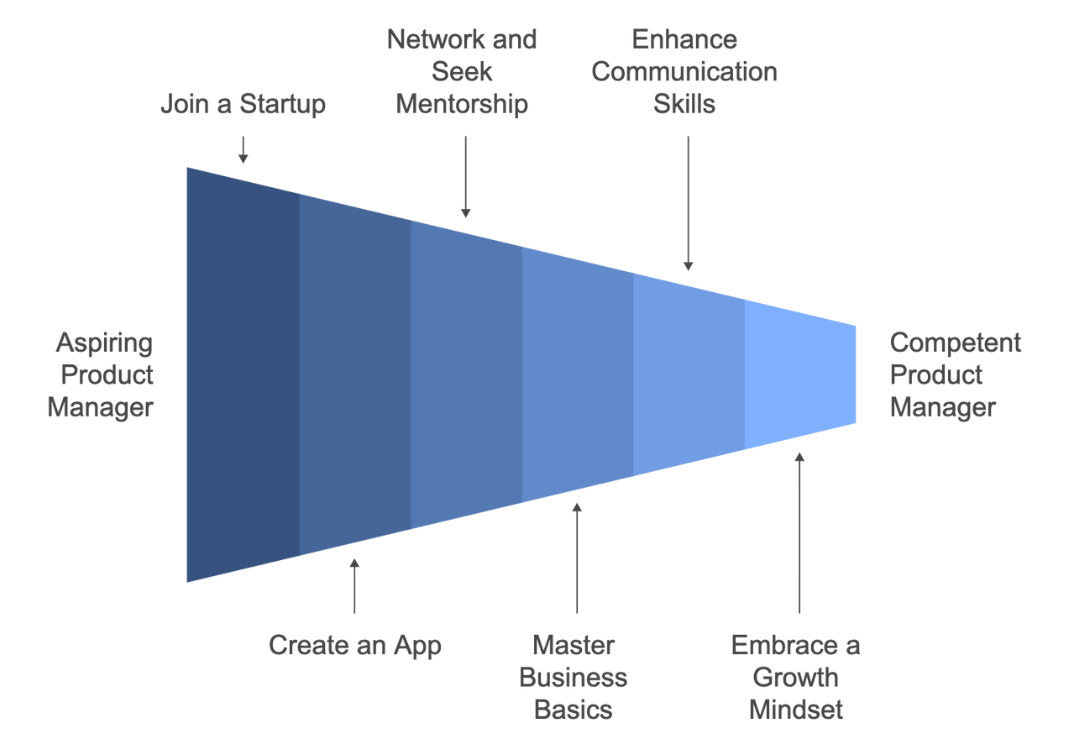Why is an MBA not required for Product Management?
Experience Over Education in Today’s Product World
Welcome to No BS Product Management, your weekly guide to mastering the product management journey—from breaking into the role to crushing it as an APM.
Each week, I share no-nonsense advice, practical tips, and real-world strategies to help you handle tricky scenarios, impress your stakeholders, and level up your PM game.
If you’re ready to stop guessing and start thriving in the world of product management, hit that subscribe button now! 🚀
Many times in my career, I’ve come across PM colleagues from fancy business schools and felt insecure about them. Having passed a rigorous competitive exam, it’s natural for me to perceive that they are smarter. But over time, I’ve seen that so
me of them falter in day-to-day decision-making. Not all of them, but some. I've realized that even though I don’t have an MBA, I am often better poised for tech product management—primarily because I started my career as an engineer and can understand tech better. Most MBA PMs who thrive are either tech enthusiasts or have hands-on tech experience.
The Engineer’s Edge in Product Management
So, what gives engineers an edge? It's their technical background. Engineers inherently understand complex systems and can communicate effectively with their development teams. This knowledge helps them spot potential roadblocks early on, which is a game-changer for any product. I tell everyone in my team and my design team that engineers are everything; without them, there’s nothing. Even a one-person product team typically consists of an engineer, not a PM or a designer. It’s super important for a PM to influence them effectively.
Engineers' Weaknesses in Product Management
That said, engineers do have some disadvantages when it comes to product management. One significant issue is that they often start thinking with constraints. Because of their technical training, they may focus too heavily on what is feasible within existing systems rather than exploring innovative solutions. This can lead to a risk-averse mindset where they prioritize stability and reliability over creativity and experimentation.
When engineers become too entrenched in their technical mindset, they might overlook the bigger picture—user needs and market demands. They might not always consider how a product can evolve or adapt in the future, which is crucial in a fast-paced tech environment. A successful PM must encourage engineers to break out of this constraint-driven thinking and foster a culture of innovation and experimentation.
This is where the MBA PMs have an advantage.
On the flip side, MBA PMs often bring a different perspective to the table. They are trained to think strategically and look at the bigger picture, unburdened by the technical constraints that can limit engineers’ thinking. This allows them to envision innovative solutions and new opportunities that may not be immediately apparent from a purely technical standpoint.
MBA PMs tend to approach problems with a mindset focused on market dynamics, user needs, and business potential. They can challenge the status quo and inspire teams to explore creative solutions that push boundaries. Their education equips them with the tools to analyze market trends, assess competitive landscapes, and devise strategies that may not align with existing technical capabilities but can ultimately drive the product forward.
Here are some No BS tips for an Engineer without an MBA to thrive as a PM:
Join a Startup: One of the most effective ways to gain experience is to work at a startup, preferably in a customer-facing role. This gives you a unique perspective on the challenges users face, which you can’t fully understand unless you’re directly working with them.
Create and Publish an App: Another straightforward way to build your business acumen is by creating and launching an app on the Play Store. It could be anything—a meditation app, a game, or even a simple notes app with some fun theming. The goal isn’t to be number one; it’s about learning customer acquisition and retention. You’d be surprised how much you can learn from tackling common use cases.
Network and Seek Mentorship: Engage with other PMs and industry professionals. Attend meetups, webinars, or workshops focused on product management. A mentor can also help you navigate the challenges and develop your skills.
Master the Basics of Business: Familiarize yourself with core business concepts, including market analysis, revenue models, and financial metrics. You don’t need an MBA to understand these—plenty of online resources can get you started.
Enhance Communication Skills: Focus on your ability to communicate effectively, both with engineers and non-technical stakeholders. Practice articulating complex ideas in simple terms to bridge the gap between technical and non-technical teams.
Be Bold and Take Risks: Don’t shy away from proposing innovative ideas, even if they seem out of reach. Embrace the potential for failure as a learning opportunity and encourage your team to do the same.



